
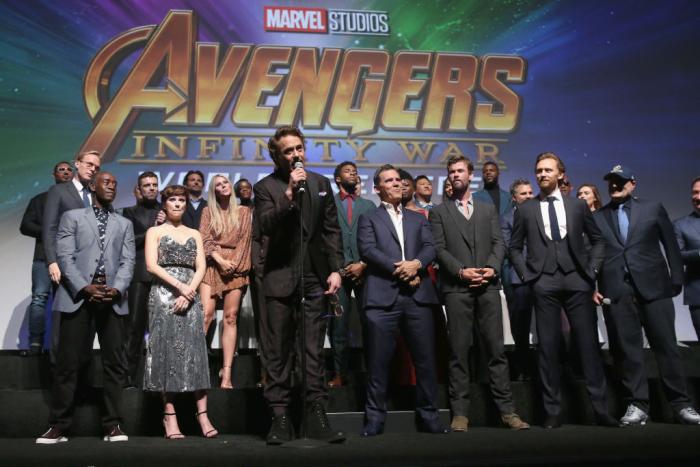
Before and After Marvel: How Has Being in the MCU Affected the Careers of its Actors?
By Kayleigh Donaldson | Celebrity | April 27, 2018 |
By Kayleigh Donaldson | Celebrity | April 27, 2018 |

It seems almost inevitable now that every actor will eventually sign onto a major franchise, with the best odds being on their inclusion in the Marvel Cinematic Universe. They’ve got Oscar winners and nominees on their team, as well as acclaimed character actors, box office golden picks, rising stars, TV favourites, and icons of another age. Whether they do it for the joy of the work, the geeky fervour of the material, the money, or some other reasons, Marvel is the new sandbox of Hollywood. Sooner or later, it feels like everyone will have a couple of minutes playtime in there. There are few actors who feel like they’ll deliberately sit this one out. Hell, if he hadn’t ‘retired’ last year, I’d even put money on Daniel Day-Lewis putting in a cameo at some point in the future.
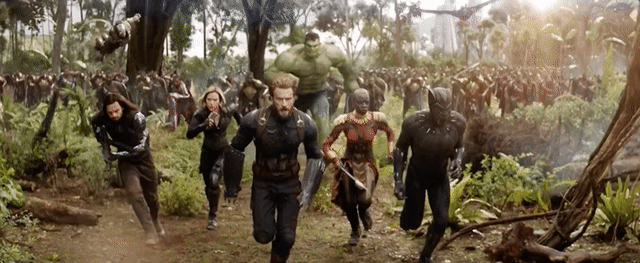
For now, the ensemble of the MCU is growing bigger by the movie, as the franchise releases an average of three films a year and commits to an ever more epic scale. The cast list for Avengers: Infinity War reads like a mighty declaration of Hollywood strength from Marvel and Disney alike. It’s undoubted that, for some actors, being in the MCU has indelibly changed the trajectory of their careers. It’s opened up opportunities they never would have had before, and it made them stars in a manner we don’t see much of these days. Yet, there are other actors who did their part in one or two movies and saw little impact on their personas and work. For them, the franchise was just another gig. Some actors seemed to be reacting against their heroic images in the films with their other roles, while others turned to Marvel for the chance to carve out a new niche in a crowded industry. Whatever the case, the Marvel Cinematic Universe’s grasp and its reach go hand in hand with how we view many of its stars.
We’re going to take a look at how participating in the now-dominant Marvel Cinematic Universe has affected the careers of some of its most notable names. Obviously, this cannot encompass every actor who’s ever appeared in one of these films, because otherwise, this piece would end up being longer than my dissertation. The choices made here are simply reflective of how major this franchise has impacted not only their careers but the way we consume these actors outside of their super-heroics. If there are actors not featured in this piece who you would like to discuss, do so in the comments and I’ll be happy to participate.
Robert Downey Jr.
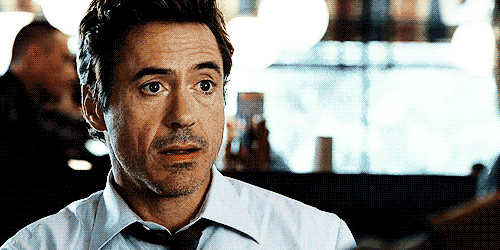
It’s arguable that there would be no MCU if it weren’t for Robert Downey Jr. His performance as Tony Stark - pure swagger with just the right amount of vulnerability - has defined not only that character but a particular sensibility that the films have embodied for over a decade now. It’s geekdom made effortlessly cool, and the unexpected charm of that performance elevated our expectations to new heights. In that aspect, I think his work and what he did is comparable to what Johnny Depp did with Jack Sparrow (stay with me here). Those characters were written in a specific way, and both actors made changes to the material that created greater fervour for them. With Depp, he took Sparrow away from the Errol Flynn style traditional hero mould that the script called for and turned him into a tic-ridden Rockstar of the sea whose surface stupidity concealed a canny mind. Downey Jr. didn’t necessarily stretch himself that much with Stark, but that role is so undeniably his, so heavy with his own personality, that the pair cannot be separated. He’s leaned into the role so much off-screen that it seems to dictate the roles he picks post-Stark.
Downey Jr. probably benefitted the most from the MCU. It made him a new star, the ultimate reinvention from his troubled days of addiction, casual breaking and entering, and jail time. Once upon a time, this guy’s career was over, despite an Oscar nomination and work with some of the most acclaimed directors of the era. The guy played Charlie Chaplin! And he was really good! Yet he was almost a step away from going full Charlie Sheen. Now, he’s one of Hollywood’s safest pair of hands.
It seems clear that Downey Jr. is happy to stay in that niche for the time being. I adore his Sherlock Holmes movies, but even I have to admit he’s basically playing English Victorian Tony Stark, albeit with a homoerotic edge. He seems happy to be Tony Stark for now - over half of the credited roles he’s taken in the past decade have been Stark related. Coming up, he has a Doctor Doolittle and Pinocchio movie, which suggests a Hugh Jackman-esque mix of blockbuster savvy and old-school movie-star talent, with the pipes to match (oh yeah, don’t forget that RDJ can sing!) Once the franchise ends, or his involvement in it, it will be interesting to see how much he wants to stretch himself as an actor in ways he’s perfectly capable of doing. Hopefully, we’ll get more work like Zodiac.
Chris Evans
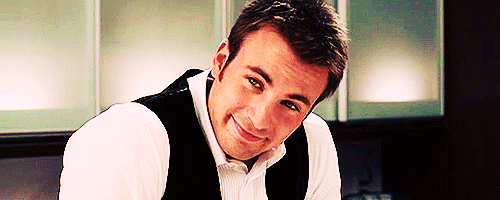
For a long time, Evans was the bro of Hollywood. The nice Boston boy with the same name as a British TV presenter seemed ideal for roles like Not Another Teen Movie and Fantastic Four, before superhero movies were guaranteed hits. He stretched himself in a variety of roles - serious drama (The Loss of a Teardrop Diamond), rom-coms (The Nanny Diaries), sci-fi (Sunshine), comedy (Scott Pilgrim vs. the World), and action (The Losers). Prior to donning the shield and muscling up to the teeth as Steve Rogers, Evans had put in the work and seemed primed for leading man status. Captain America confirmed what years of hard graft had hinted at.
Outside of Avengers work, Evans seems to have taken a deliberate step away from the major visibility of the blockbuster circuit. Instead, in the sparse roles he’s taken on in between Marvel duties, he’s gone quieter, sweeter, and a bit more daring. Think of Snowpiercer, a very strange and decidedly anti-Hollywood sci-fi thriller made in South Korea. Or consider Gifted, a gentle indie drama without a punching in sight. When he made his muted directorial debut, Before We Go, he went for romance and not action. Steve Rogers is hardly the uber-macho ideal of masculinity - he’s way too sweet for that - but Evans leans more into that gentleness on-screen when he’s not playing an Avenger. A lot of these roles didn’t get great box office, or were slow burners on the indie scene, which presents a much less pressure-driven approach to acting than headlining a major franchise brings.
Evans isn’t even doing that much promo for Infinity War since he’s carving out a new dimension to his career: Broadway star. He’s even grown a serious character actor moustache to match. Whereas Downey Jr. and other co-stars are happily into the big side of Hollywood, Evans seems more relaxed with his career and not all that driven to stay a blockbuster star.
Mark Ruffalo
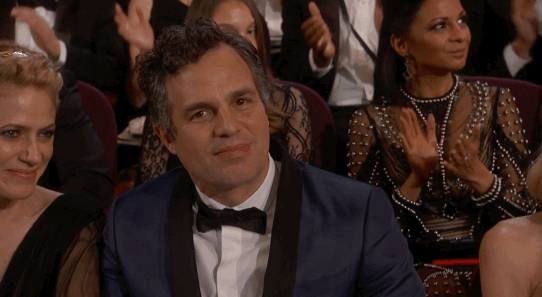
Ruffalo didn’t need the Marvel universe. The dude was already an Oscar-nominated actor with a wide array of genres and directors to his credit. He’d done Broadway! He had made his directorial debut! He was super adorable in 13 Going on 30! He’d been nominated for a Tony! He was a conscientious political activist! He was doing great! So why would he be Bruce Banner, a role that’s historically not been great for its actors?
Well, clearly something is working with him, since he’s the only actor to reprise the character in a live-action film (take that, Bana and Norton!) Playing the Hulk has its challenges as an actor, but it can also be really enticing to someone like Ruffalo - it’s not a major commitment in the way it is for co-stars who have to headline their own films; it provides him with regular well-paying work and good connections; it keeps him visible as an actor but he isn’t exclusively defined by the Hulk since he’s mostly CGI for those bits. The Hulk isn’t the first role you think of when you consider Ruffalo: you go for the Oscar-nominated parts or the cute rom-coms or the acclaimed dramas or all his political activism. Aside from the person below, he may have the best relationship with his Marvel contract as a result, or at least the best of those in the core Avengers team.
Scarlett Johansson
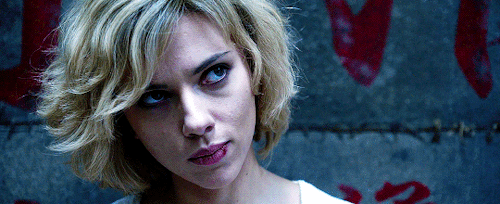
As the token woman in the main Avengers circle, Johansson has lofty goals to accomplish, both as a character and an actress. Black Widow has had to be a lot of things to a lot of people, and all without the promise of her own headlining project (which may be changing in the future, about bloody time). Still, for the acclaimed actress in the role, Marvel has given her much.
Similarly, to Ruffalo, Johansson is not exclusively viewed by audiences in terms of her Marvel part: She’s a hard worker who’s always shaking up the roles she takes, trying to balance that indie prestige with the blockbuster potential; a former child star who became a sex symbol and was heavily defined by that. She worked with talents as varied as the Coen Brothers, Sofia Coppola, Michael Bay, Brian De Palma, Woody Allen (ugh), Christopher Nolan, Jonathan Glazer, Spike Jonze and Luc Besson. For every moment that feels like she’s getting comfortable, she makes a sharp turn in the opposite direction. In the space of two years, she played Black Widow, Janet Leigh, a seductive alien who devours men, and the romantic lead of a movie who was also basically Siri.
While Ruffalo’s work as Hulk feels more like just another step on the career ladder, Johansson has leaned harder into the action possibilities offered by Black Widow. She proved that she can be that kind of leading woman then looked for projects that would show she could turn that into a money maker. Lucy is very silly but she made it a hit, although the same couldn’t exactly be said for Ghost in the Shell. All that, and she does Broadway too (with a Tony Award to her name). Women tend to be more specifically defined as types in Hollywood than men, so it makes sense that Johansson would want to do everything in her talent and power to ensure that doesn’t happen.
Chris Hemsworth
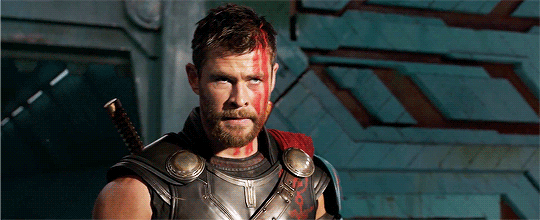
The glow-up from Aussie soap actor (and Dancing with the Stars contestant) to bona fide Hollywood star is undeniable when it comes to third best Chris. And he started with a bang, playing Kirk’s dad in the reboot of Star Trek, which is the first movie credited on his IMDb page. Stephen Milburn Anderson, the director of his follow-up film Ca$h, said that Hemsworth had only been in the USA for six weeks when he auditioned for that role. He was, as the director put it, ‘young, has the right look, is a very good actor and, let’s face it, he’s beautiful.’ In fairness, when you put it like that, it’s no wonder he became a star. The Hollywood Reporter named him as one of the male ingenues of the industry who was being pushed onto the A-list, and Thor only strengthened that.
The thing about Hemsworth’s role as Thor is that you get the sense the industry - and his team - thought they had a more conventional leading man on their hands. He’s muscled, he’s handsome, he can do stoic and serious like the best, and he makes punching people look awesome. You could practically hear producers rushing to make him the next action star, yet it never seemed to stick to his persona. Sure, he’s serviceable enough in shlock like Red Dawn and those Huntsman films, but that’s not Hemsworth. Even Marvel seemed to realize that by the time they handed the keys over to Taika Waititi. By that point, we all knew that Hemsworth wasn’t necessarily built for lofty seriousness like In the Heart of the Sea: We wanted him to make us laugh.
Between Vacation and Ghostbusters, the potential was revealed, but obviously Thor: Ragnarok made it into a fine art. It wasn’t just a chance for Hemsworth to reveal himself as a legit comedic talent. This was the stars aligning, with star and role fitting together more perfectly than they ever had before. Sure, he can do drama - Rush is great and he’s great in it, and his upcoming film, Bad Times at the El Royale seems more in line with his work in Blackhat - between Thor and his comedic movies, we know what we need from Hemsworth. Would he have found that niche without Marvel? It’s hard to say, but it was certainly his involvement in the franchise that made us care about that evolution.
Jeremy Renner
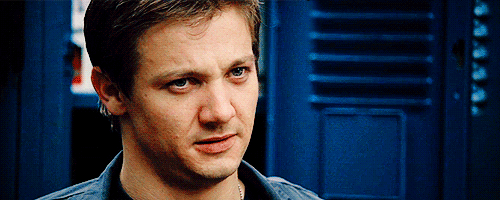
Is Hawkeye anyone’s favourite Avenger? I know there was some pushback when he wasn’t on the Infinity War poster, but I’ve always gotten the sense that Marvel have never known what to do with him. Then again, I’m not sure Jeremy Renner has either.
I’ve written about Renner before in my piece on his career, so I won’t dig into this one too much. Still, Renner is the Avenger who I’ve always been the most ambivalent about. I wasn’t sure about what Renner got from the role since it was such a thin piece of writing and everyone knew he wasn’t going to be getting a solo movie any time soon. Sure, being an Avenger is a good career boost, it probably pays well and keeps him in the public eye, but he’s never been short of work. Even before his big break, he worked steadily and often in brilliant movies. He had that Oscar nomination and he was getting a foothold in the franchise game with Mission: Impossible. Granted, playing Clint Barton has its advantages, and it clearly elevated him on some level, but almost in spite of the role. Outside of Avengers, the work has been smaller - dramas like The Immigrant and Wind River, and the occasional comedy too. When you’re not easy to define, you can go with the flow. Perhaps that’s the appeal of Hawkeye - if he leaves or dies or wants out of the franchise, it’s no big loss to either side. Backhanded compliment, I know, but hey, he’s doing fine.
Tom Hiddleston
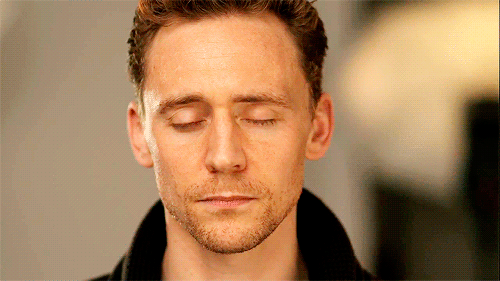
Oh Tom. Sweet Tom and your tank-top that I will never stop talking about.
I would argue that Hiddleston was the first true breakout star of the Marvel franchise, in that he was a little-known actor whose popularity was rooted almost exclusively in fan adoration. He wasn’t pushed as the rising star by marketing and the like: This was all organic fandom squee. Being Loki made Hiddleston visible to Hollywood, and that kind of fan pull is definitely something producers talked about when considering him for roles. As for how it’s helped his career? This has been something of a double-edged sword.
Hiddleston has critical acclaim in his corner, and he had that before Marvel. He’s the consummate British actor type - posh, pretty but not threatening, eloquent, probably owns a cravat, has what awful people refer to as ‘fine breeding’, and he does Shakespeare. Between Thor and The Avengers, he built up that filmography in interesting ways, working with Spielberg and Terence Davies. His auteur cred is sealed - Jim Jarmusch! Guillermo del Toro! The Muppets! - but he’s always felt a solid two steps behind his contemporary and fellow Marvel man, Benedict Cumberbatch. He’s more solidly balanced that mainstream Hollywood clout with quieter, esoteric projects. Hiddleston’s attempts to climb the ladder of acclaim haven’t taken off in the same way. 2015 was supposed to be a breakout year, but High-Rise and Crimson Peak sadly underperformed, and his supposed Oscar vehicle playing Hank Williams fizzled without a trace.
Then the tank-top happened. That’s its own thesis waiting to be written, and I question those who claim it hurt his career, but I think it certainly impacted his public persona. All those quirks and talk show appearances that made him seem so charming and enthusiastic suddenly turned a bit desperate. He seemed always on, and only Loki could fix it. Loki made him huge, but it also made him tough to escape, and there wasn’t much else to back it up in the way his fellow British actors managed to convey. I think it’s telling that Hiddleston doesn’t have anything lined up beyond more Loki. He knew when it was necessary to step back and allow the public to miss him. He’s got the chops to pull off that kind of reinvention, and Hollywood always needs a posh boy or two.
Chris Pratt
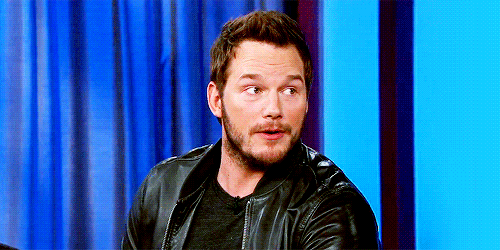
Out of all the Marvel actors, it is Chris Pratt who has seen his career be defined so exclusively in terms of what his super-heroic persona created. The former Parks and Recreation star already had comedic acclaim in his corner, yet he seemed to have been primed for a career more focused on television than film. His reinvention for Guardians of the Galaxy wasn’t a one-off - he’d already pulled off that buff workout for Zero Dark Thirty - but now it was permanent and a proven box office smash.
Pratt is exceedingly good as Star Lord, and the opportunities to prove what he can do with that type of hero grew with the sequel. This isn’t just a hero - it’s a rogue, and that calls for a specific calibre of actor. Much to everyone’s joy, Pratt leaned into it with Guardians of the Galaxy: He was cheeky and charming and not so secretly tender, and he talked to a raccoon. As much as the films are ensemble pieces, they still need to be anchored by Pratt. He used to be funny, but now he was funny and hot in Hollywood’s eyes, which tells you a lot about how fatphobia works.
That type has its appeal for specific movies, but it doesn’t work in all of them. Jurassic World is a bad movie that finally disproved the theory that Pratt’s charm could save anything. What made him so enticing as Peter Quill felt repulsive with Owen Grady, a matter not helped by a narrative that seemingly went out of its way to reinforce the most horrid sexism, on top of just plain old incompetent storytelling. Of course, that movie also made a lot of money, so it felt like lessons wouldn’t be learned. Like Downey Jr., Pratt seems content to stick to big blockbusters for now, swinging between the Marvel-verse and Jurassic World sequels (and, of course, The Lego Movie). An attempt to prove his box office mettle without a reliable property behind him - the disastrous Passengers - didn’t perform as expected. The desire to push Pratt as a new Harrison Ford forgot what made Ford, and indeed Pratt, so charismatic in the first place. Pratt can do more, but it’s a question of whether or not he wants to do more.
Chadwick Boseman
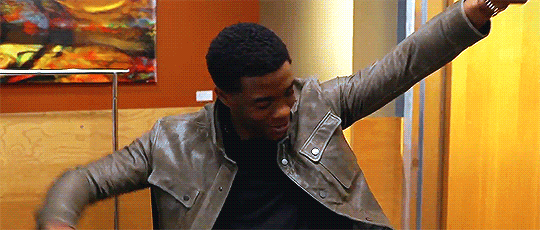
Boseman is a Howard University-trained director, who studied at the British American Drama Academy in London, as well as a former drama instructor. It still took him until he was 36 to get his first major starring role in a film. In terms of his film work, Boseman’s output is sparse - because Hollywood is racist as fuck - but it remains fascinating how heavily his career has been defined by black history. His first major role was playing none other than Jackie Robinson in 42. Two years later, he played James Brown. Three years after that, he was Thurgood Marshall. A quarter of his film credits are biographical roles.
What does this say? Well, it’s a reminder that Chadwick Boseman is fucking good at what he does (except in Gods of Egypt but nobody would blame him for that), and that the industry is so damn limited in the number of black actors it pays attention to. It makes you wonder if he is the only black actor not named Will Smith or Denzel who some studio heads can name. It also seems worth noting that, while playing real-life figures is an inevitable awards boon for white actors, Boseman saw none of that, despite great reviews to his name.
Being T’Challa obviously changed that dramatically, but mostly because it reminded Hollywood of the leading man he deserved to be. Boseman is super handsome, endlessly charismatic, has consistently proven dramatic chops, and can carry a movie on his shoulders alone. If Hollywood doesn’t take advantage of that, especially following the earth-shaking numbers that Black Panther did, then they deserve to fail.
Michael B. Jordan
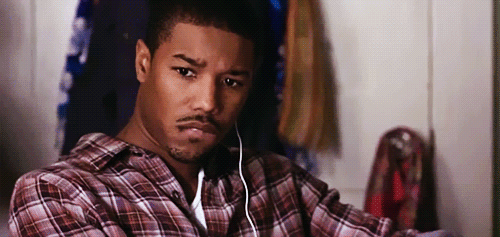
It’s way too early to gauge what impact Marvel will have on the career of Michael B. Jordan. Yet I wanted to include him here because he presents an interesting and relatively unique side of the conversation: The franchise role as auteur collaboration. As celebrated as his work in Black Panther is - and he’s easily the most talked about and deftly explored villain in the franchise since Loki - it’s far more a reflection of the relationship he’s carved out with director Ryan Coogler than anything a mere franchise could offer him.
Jordan had the work in his corner, particularly in his TV work like Friday Night Lights and Parenthood, but it was Coogler who brought out the best in him. Fruitvale Station saw the pair build the kind of actor-director relationship that most in the industry would kill for, and the reviews for the celebrated indie drama had people calling him the next Denzel. While Fantastic Four was a minor disaster, it barely mattered for Jordan because he and Coogler had managed to take their partnership to the next level thanks to Creed. They built upon the legacy of a major film series, all while reviving it for a new age, and making it unapologetically black. Black Panther was just the cherry on top of the sundae for them both in that regard: Two highly talented black men operating in sync to tell black stories on progressively larger scales. If it was any other actor, or Jordan working with any other director, it seems doubtful that the high-wire act of Killmonger’s character would work. Black Panther will certainly benefit Jordan. It seems to have garnered him the best acting reviews of any Marvel villain, and legit awards talk. The really exciting stuff comes from seeing what he and Coogler do next. Long may their collaborations continue.
Zoe Saldana
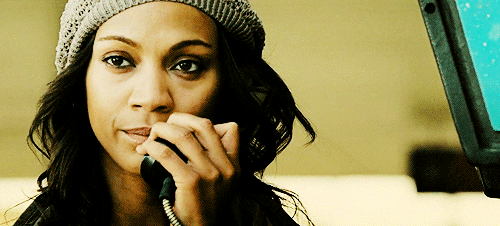
When you’re tied to the most successful film ever made, and the director of them keeps threatening to make you do at least four more of them, you’d think that the last thing Zoe Saldana would want to do is another major franchise. Between Avatar and Star Trek, it’s just a surprise that Saldana has time to do anything else, much less a Marvel series. Still, the actress has clearly found her comfort zone in the acrobatic frenzy of playing Gamora. Indeed, she may be the most vocal actress in favour of the franchise age.
This month, she gave an interview to Net-a-Porter in which she slammed the supposed elitism of the industry in its attitude towards films like the Marvel universe. Regardless of what you think of that statement, Saldana’s awareness of how these films influence and shape the worlds of the primarily young audiences who watch them is a sharp insight.
Saldana has worked consistently since Avatar, often appearing in multiple films per year, across genre and scale. As a member of those franchise ensembles, her visibility has often been cloaked in make-up or effects work. Aside from playing Uhura, those two franchises disguise the fact that she’s a black Hispanic-American. Films do this, and she’s not the first actress to spend most of a movie looking completely unlike herself, but this is also part of an insidious trend in which actors of colour get to be in big movies but never as people of colour: Think Idris Elba in Star Trek Beyond or Lupita Nyong’o in Star Wars: The Force Awakens. These opportunities are obviously wonderful for Saldana - and Gamora’s become one of the most intriguing women in the MCU - but you still can’t help but note how damn long it took the franchise to start giving substantial roles to women of colour.
(Header image from Getty Images. All gifs from Giphy)
← Items that No One Will Buy Online Anymore | SPOILERS: How Many Marvel Characters Die in 'Avengers: Infinity Wars'? →

What’s Old Is New Again: Old Hollywood Glamour Glitters at the 2024 Oscars
Al Pacino Presents Best Picture Oscar, Confuses Everyone
The Dangerous Lie Of 'TradWives'
A Legendary Horror Franchise Is Headed To Television
'The Mandalorian' Season 4 Is Probably Not Happening
Halle Bailey On Why She Chose To Keep Her Pregnancy Private
More Like This
Kyle Mooney's Horror-Comedy 'Y2K' Goes Too Hard on Kyle Mooney's Sense of Humor
'Imaginary' Almost Sucks
Box Office Report: Kung Fu Sandworms
The 2024 Oscars Were Great Right Up Until the End
Kristen Stewart's 'Love Lies Bleeding' Is Gonna Kick Your Ass And Make You Beg For More
Reviews